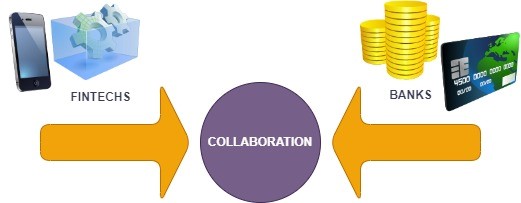The fast-paced advancement of financial technology (fintech) has disrupted the old banking landscape, compelling banks to rethink their strategies and adapt to a changing economic environment. Fintech firms challenge traditional banking methods by bringing agility, innovation, and customer-centric solutions. Banks are recognizing the need to reconsider their approach to fintech collaborations as the economy advances. Such collaborations, which can take many forms, can provide clear benefits to both parties: fintechs gain market legitimacy and access to capital to accelerate their growth, while banks typically gain access to more advanced technology to help them meet customer demands for improved and more personalized experiences.

- Evolving Customer Expectations
Customer expectations have shifted in the digital age, with customers seeking personalized, convenient, and efficient financial services. Fintech firms have excelled at matching these expectations by providing user-friendly interfaces, quick and frictionless transactions, and customized financial products. Banks must embrace fintech collaborations to expand their digital capabilities and deliver the seamless client experiences expected in today’s economy in order to remain competitive.
- Enhanced Product Innovation
Fintech firms are renowned for their agility and ability to develop and market new financial products and services quickly. Banks have access to a larger pool of ideas, technology, and skills by cooperating with fintech start-ups. These collaborations allow banks to shorten their product development cycles and bring new and innovative solutions to market more quickly. Banks can promote product innovation and remain ahead of the competition by embracing fintech partnerships.
- Addressing New Market Segments
The changing economy has resulted in the emergence of new market niches and consumer needs that may fall outside the typical banking scope. Fintech firms are well-positioned to target these new segments due to their rapid operations and concentration on specialised consumer niches. Banks can enter these sectors by collaborating with fintech firms, expanding their reach, and uncovering new growth potential.
- Agility in a Competitive Landscape
The banking industry is under increased competition from non-traditional firms such as huge software companies and challenger banks, as well as other banks. Fintech collaborations enable banks to improve their agility and competitiveness by leveraging innovative technology, data analytics, and process automation. These agreements enable banks to adapt more effectively to market developments, achieve operational economies, and provide better goods and services to clients.
- Regulatory Compliance and Risk Mitigation
The shifting economic landscape has resulted in tougher regulatory requirements and a greater emphasis on risk management. Fintech collaborations can help banks navigate this complexity by employing technologies that help with regulatory compliance, risk assessment, and monitoring. Banks can increase their risk management practices and maintain adherence to developing compliance regulations by cooperating with fintech firms specializing in regulatory technology (Regtech).
The changing economy has prompted banks to reconsider their strategies and embrace fintech partnerships. Banks can satisfy growing client expectations, promote product innovation, expand into new market segments, improve agility, and handle regulatory compliance and risk management concerns by cooperating with fintech firms. Fintech collaborations allow banks to utilize the capabilities of both traditional banking and fintech innovation, resulting in a more customer-centric, efficient, and competitive financial services ecosystem. As the economy evolves, building and maintaining these partnerships will be critical for banks to remain at the forefront of the industry.
